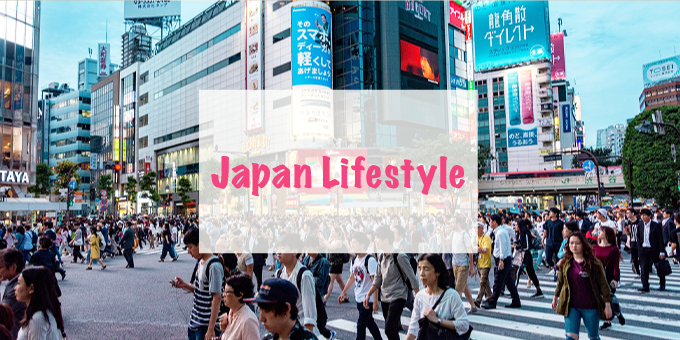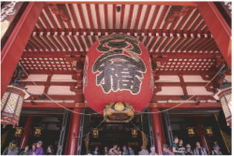
Accommodation
If you plan to live in Tokyo or another big city, accommodation may be expensive. Japan is one of the most expensive country in term of accommodations.
Mostly working holiday holders are living in a Sharehouse, guest house or apartment suitable for foreigners.
The Share house system is more and more use in Japan and many Japanese are using it too. Sometimes, living in a different country without knowing know one may be tough, That’s why living in a share house with people from all around the world is the perfect deal.
You will be able to meet people easily and share with them your thought and advices.
Japanese language
Compare to western country, the Japanese writing ans speaking are different.
If you decide to come to Japan but do not speak Japanese, it may be difficult at the beginning but not impossible !
Mostly, the reason why people decide to come to the land of the rising sun is because they are interested in the culture and the Japanese animation. Most of them have learn Japanese as well.
Japanese is a language as another and it is not difficult to learn and may be more easier to learn faster while living in Japan.
Of course, at the beginning daily life and job hunting may be difficult but if you could surpass it it would be an amazing adventure for you !
Paperwork
Administrative paperwork, like in every country are sometimes difficult to deal with.
After your arriving in Japan you have several things to do and many place to go to get register.
Nowadays, mostly utilities have english speaker and mostly could give you the information papers in English.
Japanese are really helpful with foreigners and will always try their best to help you.
After settle down in you new home do not forget to get register at your closest city hall et inform your embassy to your venue in Japan.
LifeStyle
People from western country who are coming to Japan may say Japan looks like another universe, technologies, night life style, food and beverages could be completely different from your home country and you could be stunned but the scenery.
If you like big city and animation, Tokyo may be suitable to your need. Life in Japan is always lively and looks like the city never sleep.
Living in Japan is a total change of scenery. The culture, the environment are different from your home country but can be a unique and an amazing experience.
Everything may be different and you might have many questions about the daily life and co.
Here some frequently questions you usually ask us. Feel free to ask us any others questions !
F.A.Q
・ How much should I expect to spend on living costs?
Referring to the Cost of living Index by country 2019, Japan is in the TOP10 of the highest country on terms of living costs.
Like much asians countries, the food will not be expensive if you are eating local. Contrary to western countries, supermarket and grocery store can be more expensive and vegetables and meat as well.
Depending on if you are living in a big city, accommodations may be expensive.
To estimate the cost, you will find below a list detailing the monthly living costs of a Working Holiday Maker in Tokyo.
• Accommodation:
¥70,000 per month
※ Center of Tokyo, living in a Share House (Private room, share common area)
• Food:
¥35,000 per month
※ Based on local Japanese food
• Transport:
¥20,000 per month
※ Included the way off to work and an extra for sightseeing during spare time.
• Activities:
¥30,000 per month
TOTAL = ¥ 155,000 per month
※ Estimation based on personal data, please refer it as an exemple. Depend on your work, saving income and way of life, the estimation may changes.
・ What types of accommodation do working holiday makers usually end up in?
Many working holiday makers stay in a share house which have private bedrooms with shared toilets, showers, kitchens, laundries, and lounges.
They are usually cheaper and easy to move into and the rooms usually have a bed, a refrigerator, and free internet access. They can be noisy and don’t offer much privacy, but they are usually the most realistic option for working holiday makers.
The number of shared houses and apartments in Japan has gradually been increasing in recent years and many foreigners companies offer their services to help you help an accommodation.
Rent a private apartment is more expensive especially if you are living in a center of Tokyo. Many fees have to be paid in advance.
・ How can I rent a private apartment or house?
Unfortunately renting a private apartment is close to impossible for people on a working holiday, as most apartments have 24 months contracts.
The fees, deposit, etc. that you are required to pay upfront usually amount to around 4 to 6 months rent, and only part of this is refunded.
There is the deposit called shikikin (usually equal to 2 months’ rent and is not necessarily refunded), then there is reikin (usually equal to 1 to 2 months’ rent and is a nonrefundable ‘gift’ paid to the landlord), then there is the fee paid to the real estate (equal to one month’s rent), and then finally the first month’s rent.
They are also usually completely unfurnished so you will need to buy everything from light bulbs and curtains to a refrigerator and washing machine. And on top of all that, you usually need to have a guarantor who is a Japanese citizen with a stable full-time job and a good credit record.
Also unfortunately many landlords are extremely reluctant to rent to non-Japanese people.
There are furnished apartments that cater to people staying temporarily in Japan but they tend to be about 50% to 100% more expensive.
・ Where can I stay until I find a place to live?
Youth hostels in Japan usually cost between 3000 to 4000 yen per night and are often a good to place to stay until you find something permanent.
Some guesthouses also have renting room by the week.
・ How much is rent in Japan?
Basically the larger the city is the higher the rent will be.
There is also a very large difference between renting in the center of the city and renting outside the city.
Accommodation that is close to train station tends to be more expensive.
Rent is usually charged monthly in Japan.
Usually the cheapest and simplest option for working holiday makers is to live in a share house (in Tokyo usually around 50,000 yen to 90,000 per month).
・ How much money should I take to Japan?
It will probably cost somewhere in the range of 150,000 to 250,000 yen to get yourself set up. You should bring at least twice as much as this to make sure you can survive until you receive your first pay check.
Remember that your first month in Japan will be particularly expensive as you will likely have to pay a deposit for the room you rent and your first month’s rent in advance, and you will have buy yourself a range of basic necessities such as bedding etc. It might also take you a month or more to find work, and you will probably receive your first pay at the end of the month after the month you start working in, so you will need to have enough money to tide you over until then.
Each country has a set minimum amount of money that is required when applying for a Working Holiday Visa, but with the recent strengthening of the yen, you might find that you actually need substantially more.
・ What should I take to Japan? What should I leave behind?
The short answer is, as little as possible, especially if you are planning to stay in or near one of the major cities. You will be able to buy pretty much everything you really need in Japan, though you might not be able to find your favorite snacks, etc.
Obviously you need to think carefully about whether the things you take with you will actually be useful to you or an encumbrance, and whether or not you can buy them cheaply and easily in Japan.
It’ s best not to take any unnecessary medicine with you (see below).
If you are a larger-than-average person you may find it difficult to find things in your size. If you have any favorite personal hygiene products that you can’ t do without, it might be a good idea to take a supply of them with you or have them sent to you as you might not be able to find similar products in Japan.
Most electric and electronic items can be purchased fairly cheap in Japan and buying them in Japan means you won’ t have to worry about using transformers and plug adaptors. However you might want to bring your own laptop as non-Japanese operating systems are difficult to find outside of Tokyo and Osaka. Duty-free stores often sell electrical goods that are operable in languages other than Japanese.
Books in foreign languages, especially English books, are readily available in larger cities. If you are going to Japan in spring or summer it might be a good idea to pack only light clothes and gradually buy warmer clothes in autumn as the weather grows cooler (check the average temperatures of the area you’ ll be staying in first to make sure).
・ Should I take medicine to Japan ?
The importation of medicine into Japan is very strictly controlled. Bringing into Japan certain seemingly-innocuous common medicines for colds, hay fever, congestion, etc. can actually get you arrested at the airport if it contains substances such as pseudoephedrine, codeine, etc. If you don’ t need it immediately you should buy medicine after you have arrived in Japan (you should check to see whether particular types of medicine are available).
If you bring prescription medicines to Japan:
- It has to be part of your medication.
- It has to be for your personal use only.
- It must be oral or externally-applied medicine, not injected medicine
- It must be free of prohibited or controlled substances
- It must not exceed one month’ s supply
If your prescription medicine doesn’ t meet the above conditions you will have to apply for special certificate called a « yakkan shomei » to bring your medicine into Japan. Contact your nearest embassy or consulate to ask them how to get the necessary application documents.
・ What is the resident card ?
The resident card is your ID in Japan. It will be deliver to you at the airport while you are passing by the immigration office.
The resident card will replace your passport during your time in Japan and may be ask during policy routine.
When you are arriving in Japan you have 1 month to get register to the closest city hall near your place.
・ How can I avoid culture shock?
Culture shock will more than likely creep up on you while you are in Japan. On the surface Japanese society somewhat resembles to Western society but the longer you are in Japan the more you will begin to notice differences.
The best way to lessen the effects of culture shock is to study Japanese and learn as much as you can about Japanese culture and society before you arrive.
When you first arrive in Japan everything might seem wonderfully fresh and interesting. Gradually, as the novelty begins to wear off, certain aspects of Japanese culture may start to irritate and to annoy you, and some people start to feel a bit depressed and homesick. While there’ s no need to accept cultural differences that you find irritating or unpleasant, doing your best to tolerate those differences and understand the reasons behind them can help you to feel more comfortable.
As you get used to life in Japan, things will start to feel less strange. In fact, most people experience reverse-culture shock to some degree when they are returning to their home country.












